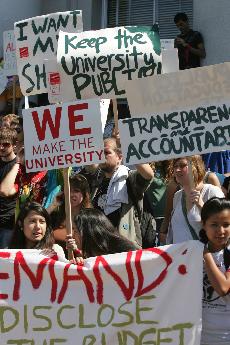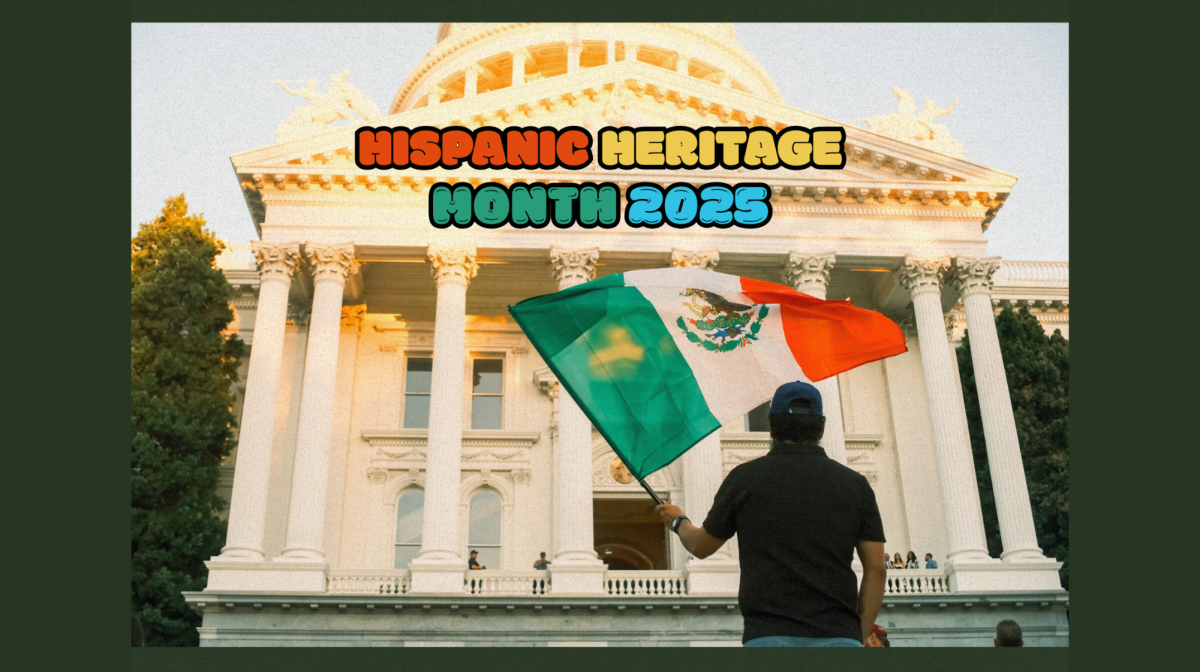Choosing activism

Berkeley students protest recent fee increases.:McClatchy Tribune
November 13, 2009
The grassroots movement is now ingrained in our political system.
It is a drive forward, propelled by the masses.
Obama’s campaign for “change” motivated people, and grassroots efforts won him the presidency.
Bumper sticker witticism summarizes traditional conservative sentiment – the ever-clever “You can keep the change.”
However, not all rightists reject these accelerated shifts in political campaigning. There are candidates and growing movements of people who embrace the grassroots efforts in their respective political communities.
Senior government major Greg Cramer supported Ron Paul in the 2008 presidential election. Paul, a Republican member of Congress from Texas, can attribute grassroots efforts to the success his campaign enjoyed.
“The grassroots aspect was refreshing,” Cramer said. “First he was just on esoteric political sites, including liberal ones, and then his name was just coming up everywhere.
His expansion of civil liberties and opposition to corporate welfare was appealing and moved people.”
One of the easiest and most effective ways to engage in impactive activism is voter registration.
At the state level, both political parties prosper when their smaller, local chapters register voters. It is an opportunity for smaller chapters to make big a big impact and inform people of the issues and to remind them they have a say.
Our own College Democrats have run voter registration drives for the past four years. This year, they are pairing with the California Faculty Association to ensure this drive is the most successful one yet.
“Voter reg is just one of the ways we can be proactive in making sure that the beliefs and values we hold will be successfully represented by our politicians,” said College Democrats’ executive director Melissa Hurtado.
We are lucky to have this kind of opportunity on our own campus.
The beauty of the grassroots movement is that it puts the value back in the individual and the community. We work peer-to-peer to make right from wrong.
We have to do what it takes, whether that is voter registration or making calls for our gubernatorial pick or going door to door, speaking with people face to face about the congressional candidate that will best represent us in a year.
It is not often clear and it is rarely easy, but if nothing else, we have to take a stand and pick a side.
For my efforts as a student working against Proposition 8, I was asked to speak at the election night news conference in San Francisco in front of 2,000 people last November.
There is no contract between effort and victory. Standing on a stage in a room full of people who are already on your side is moving, but it doesn’t mean you’ll win.
That was the hardest lesson I ever learned.
I am still nursing wounds from elections past and systematic injustices. This system broke my heart but I still want to fight.
In the end, no part of me could give up on justice because a few counties or a few states do not share my ideals this year.
We get to have a say in the social movements of this country. In having that voice, we subject ourselves to personal, emotional and political turmoil.
But the opportunity to affect change takes precedent over indifference and self-preservation.
Sometimes good candidates lose. Sometimes we just have to keep waiting until people will be ready to change laws that are not fair.
We, unlike so many people, have a system that enables our participation. It is our duty to partake in that. We have to push past the hardship and the disappointments and still work for change.
Grassroots efforts help drive ourselves and others forward with this involvement.
We do not just want our presence and efforts to be recognized. We want our ideals and our values to be heard.
“Young dems have been making a presence for ourselves and gaining respect from the party, and it’s because we’re dedicated, hard workers,” Hurtado said. “We walk precincts and phone bank and really dedicate ourselves to our work. We vote and we get people out to vote.”
Young people are standing up and doing something about the things that we think matter.
We do it for the cause and the candidate, and we do it because we understand that getting involved can be overwhelming, but it is imperative.
We are doing it for a better world.























































































































